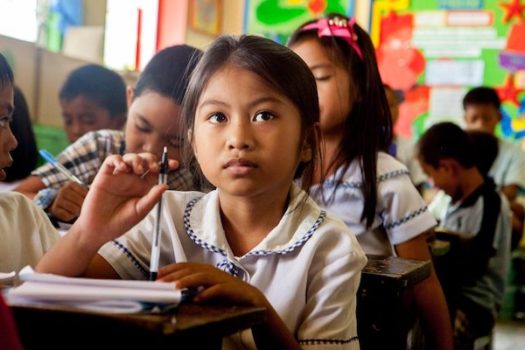
Enfants du Mekong (EdM) is a French NGO and non-profit charity that works to help children in Southeast Asia gain access to education and health. With their activity, EdM contribute to enhancing children’s and their families’ quality of life, as well as the opportunities for a better future for the whole region.
The organisation was founded in 1958 as the Association pour la protection de l’enfance du Laos (APPEL) by René Péchard, a French doctor, with the aim to help orphans in Laos through sponsorship and volunteer French dentist services. In 1977, APPEL became Enfants du Mekong, and is currently active in Cambodia, Laos, Thailand, Vietnam, the Philippines, Myanmar and Yunnan region in South China. Nowadays 22 000 children receive an annual scholarship from as many sponsors out of a total of 60 000 supported daily; 64 volunteer delegations in France and 7 delegations represent the charity in different countries worldwide (Belgium, Germany, Hong Kong, Singapour, Switzerland, Thailand & UK).
What do they do?
Apart from supporting children’s education, essentially via school scholarships, so they don’t need to work to help their families, EdM’s actions also address infrastructure issues to improve public welfare of communities. Through local development programs, EdM build and renovate schools, kindergartens, and dispensaries as well as infrastructure to help the communities access drinking water.
The evolution of these projects is monitored on-site every year by EdM with local teams to oversee their progress and ensure the correct use of funds.
What can you do to help?
- US$ 65 contributes to the construction of one water tank at Karens of Gisewek
EXO Foundation support
EXO Foundation donated to help Enfants du Mekong build a water tank for drinking water in the Karen village of Gisewek, Chiang Mai province in Northern Thailand. It will contribute towards enhancing the livelihoods of 170 families across 3 villages. Karen as most ethnic groups (called minorities) are not granted Thai citizenship and as such don’t receive much support from the Thai government for education or infrastructure. They rely on their own agricultural activities to survive in self sufficiency.